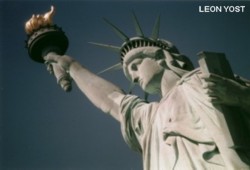 |  |  |
|
| ||
 |  |  |
 |  |  |
|
| ||
 |  |  |
|
|
|
Historic Houses
Bordentown From Historic Houses of New Jersey by W. Jay Mills, 1902 Edited by GET NJ, COPYRIGHT 2004 ANOTHER house in Bordentown connected with the Bonaparte dynasty is quaint Linden Hall, which looks like a row of little eighteenth-century houses. It was erected at the end of the eighteenth century by Major Fraser, of Charleston, South Carolina. This gentleman, a son of Scotland, had served in the British army with his friend Dr. Burns, of Bordentown, and it was while visiting him that he purchased the land for his future dwelling. For many years he came there every spring with his family, and staid until fall, and after his death his widow, Mrs. Anne Langton Fraser, occupied it permanently. Francis Lucien Charles Murat, with whose name it will ever be most often associated, was the son of the brave and unfortunate Joachim Murat, the king of the two Sicilies, and Caroline Bonaparte, the sister of the Emperor Napoleon. "Prince Reckless" they still call him in Bordentown, for he will always be remembered as the most startling figure in its history. From the first day he appeared at Bonaparte House, after an exciting early youth in Europe, he flared like a sky-rocket on the decorous town, and his subsequent career on the stage of Southern Jersey furnished more food for gossip in his day than the uneventful lives of many hundreds of old Bordentown residents now sleeping in the Christ Church graveyard. Among his many acts which startled society, the most talked of was his romantic marriage to Miss Caroline Georgina Fraser, a lovely girl and a prominent belle, then admired for her beauty in the famous salons of the Beresford and Middleton families of Charleston, as she was in after years at the court of France. Prince Reckless and his fair Georgina were as true and dashing a pair of lovers as ever flew o'er the bonnie borders of Scotland to Gretna Green, and their elopement had much of the charm of those highly-colored ones of old-time Dumfriesshire days. It is true no swaying post-chaise occupied by an irate father followed them to their fate, but the bridegroom reckoned with the enormity of jilting a princess, and the bride the disapproval of both the interested families. When Joseph Bonaparte heard of their quiet drive over the Trenton Road, ending in a marriage at old St. Michael's, he was greatly incensed, and vowed the lady of Lucien's choice should have the full pleasure of supporting him. |
 |
"The inhabitants of Bordentown are noted for
their intelligence," Isaac Wilkens, a gentleman of Westchester, New York, wrote one hundred and six years ago ;
and many heads there nodded in approval when they
heard of the count's remark. It soon proved too true,
and Murat, who was indeed a prince in his lavish mode
of spending money, made great inroads on his wife's
and her sister's private fortunes. After a few years
of extravagant living about the country, Linden Hall
was enlarged, new equipages and furniture ordered
from Philadelphia, costly scenic wall-papers procured
in Paris, a large glass aviary with an artificial tree
built in one of the rooms, and many other improvements made.
Before Murat's marriage he is said to have wasted
nearly a hundred thousand dollars in a very princely
manner of living on his farm at Columbus and in his
Italian villa near Bordentown. Gambling was his greatest passion, and many tales are told of his games at the
American House and at the White Horse Tavern. Like
Henry Clay, he would sometimes stay shut in a room
with his cronies, forgetting even old Father Time in the
excitement of the stakes. When out of money and
deserted by his first friends, he made companions of the
shopmen and liverymen of the village. He never forgot
that he was a prince though ; and it is related of him that
while once promenading Chestnut Street, in Philadelphia,
he was met by one of his rustic chums, who hailed him
with" How are you, prince?" and extended his hand.
"Who the devil are you? I don't know you here," was
his indignant reply.
Soon every sou of the Fraser money had flown, and
the prince, out of drafts from his relations abroad and
failing to obtain any help from the count, was in despair.
The outlook for the future of Linden Hall grew drearier
every day, and to save their possessions from the bailiff
Madame Murat and her sisters Jane and Eliza decided
they would start a boarding-school.
The boarding-school with a princess for chief instructress proved for many years a great success, although the
prince at first scoffed at the idea and always cordially
hated his wife's share in teaching the young idea how to
shoot. According to the old ladies of Bordentown, –
and no one has ever disputed them, –
the women educated at Madame Murat's school were known the world
over for their fine manners formed there. Like the
famous Madame Campan (Madame Campan was the sister of Edmond Charles Genet de
Charmantal, the famous "Citizen Genet," who married the daughter
of Governor George Clinton, of New York.
) of Paris, who taught the
daughters of Louis XV. and later the mother of Murat
and her sisters, Madame Murat believed above all in
instilling the love of chez-soi in the minds of her pupils.
The arts of superintending a home, embroidering, lace-making, and other feminine accomplishments were always
first in her curriculum. A daughter of Iturbide, the
Mexican emperor, is said to have been one of her pupils ;
and those scholars (generally heiresses) from the West
Indies and Cuba, which tradition has sent to every old
boarding-school in such astounding numbers, fairly
flocked to Madame Murat's. A lady who attended
school at Linden Hall when a girl gave the following
interesting glimpse of life there:
Madame Murat was a noble woman and a kind teacher, and we all
liked the prince, for once a year he gave a party to the girls on the
receipt of a legacy from abroad.
'My lord, de judge, and gentlemen of the jury, dere has been great
efforts and much troubles to make everybody believe me a very bad man;
but that is of no consequence. De man tells you I kick him six times!
six times! so low as possible. I very sorry of the necessity to make him
show how low it was, but I could not avoid it. Now, my lord and
gentlemen of the jury, you see this part of the human skeleton (taking
from the enormous pocket of his hunting-coat a human pelvis with the
os coccygis complete and articulated with wires). Here are de bones.
Dese little bones vat you see here (shaking them to the jury like the end
of a rattlesnake's tail), dese leetle bones are de very place vere de tail
of de animal shall grow; dat is to say, if de man who sue me were to be
a veritable jack – vot you call it? – ah! jack-horse, and not only very
much resemble dat animal, vy you see dese leetle bones, if dey were
long enough, would be his tail!' The court was convulsed with laughter,
and the prince, being extremely acute, and knowing he had the best of
it, drew his speech to an end by stretching out his enormous leg, armed
with his sporting-boot up to his knee, and clapping his hand on his massive thigh so that it resounded through the court-room, exclaimed, ' My
lord and gentlemen, how absurd to say I could give him even von kick
vid dat, and not to break all to pieces his leetle tail!'
It was some time before the judge could gather enough dignity to sum
up, when the fellow got six cents damages and the prince three cheers."
When the day of parting finally arrived and the town
realized that the Murats were really leaving them to
take up their rightful positions beyond the sea, all the first
families of Bordentown came out to tearfully kiss them
good-by, and the streets were filled with friends as their
stage-coach rumbled off over the dusty road, bearing them
away from their early home forever.
The cordial reception the imperial family gave the
Princess Murat did not lessen her liking for her true
friends of Bordentown, and she and her children corresponded with them for many years, asking questions
about Linden Hall, their old nurses, the townspeople who
had married, – sharing in a degree their joys and sorrows as they did in the days when they were poor and
without high position in their midst.
In the year 1857 the Princess Murat's sister, Jane
Fraser, wrote to her friend Mrs. Allen-whose old dwelling, Rose Cottage, faces Linden Hall-the following
beautiful letter, which has never before been published:
My Dear Mrs. ALLEN –
Among the many changes that have taken place in our dear old village
it is probable that the memory of the old inhabitants may have passed
away with other forgotten things – And yet, I venture to recall myself to
your mind as one having inherited a claim on the friendship of your
family. For some years my interest in your domestic circle was from
time to time gratified by the frequent mention of your household in Bessie
Harwood's letters, but she has for a long while given up writing and so
entirely ignorant am I of all that passes in your part of the world that I
dare not even make inquiry after those near and dear to you lest I should
awaken some painful feeling that time may have soothed.
Of us you are probably as little informed. We have been very
mercifully dealt with during the last ten years. The little band that left
Bordentown scarcely venturing to look forward to any settled resting
place has taken firm root in a new land. The circle is unbroken and a
new and precious link has been added in our little Louis, now nearly six
years of age. Caroline as I suppose you know is married and Joachim
is the father of two lovely children. My sister and I often talk of the
old times at Bordentown and we shall always be pleased to see any one
who can give us information of the friends we left there. I have been
told that your present residence is just opposite to our house but that that
last is so changed that we should not recognize our old habitation.
Many anecdotes have been told about the Prince Reck-
less of Bordentown. Perhaps the most interesting and
amusing authentic one is the story of an assault and bat-
tery printed in a West Jersey newspaper about fifty years
ago. It reads:
Bordentown in the thirties was one of the most charming spots
imaginable, and school-girl life at Madame Murat's was delightful. I
remember very well the large square hallway where bevies of chattering
girls were wont to congregate in the mornings to frolic and talk over the
latest whim of dear Miss Eliza. The drawing-room, or parlor as we
called it, was very elegant, all the furniture was upholstered in red brocade with a garniture of green laurel leaves and came from the queen's
palace in Sicily. In the hallway were many dark old pictures, sent to
the prince by his mother I once heard.
In the year 1848, when the French Revolution occurred, the prince obtained the loan of a sum of money
and returned to Paris. There he quietly awaited the
long-expected turn of the wheel of fortune, and as soon
as he was assured that the star of the Bonaparte fortunes
had arisen he sent for his family. Madame Murat's
boarding-school before that time had seen its period of
prosperity, and while the prince was dreaming bright
dreams in Paris his family was on the verge of starvation in Bordentown. When the welcome letter was
received by them that they were to join him in France,
Madame Murat was penniless, and the neighborhood,
learning the true state of affairs, presented her with a
purse sufficient to enable her sisters, her children, and
herself to obtain the wished-for passages. Never was
there such a snipping and snapping of scissors and ripping and sewing of silks and calicos in Linden Hall as
occurred during the last week of the Murats' stay in
Bordentown. Every woman of social prominence gladly
took some article from her wardrobe and went to the gala
sewing-bee to help prepare proper habiliments for the
grandnieces (Joachim Murat, Achille Murat, and Lucien Murat, Caroline Mura
and Anna Murat. Caroline later in life married the Baron de Chesseron, and Anna the Duke de Mouchy.) and grandnephews of Napoleon to appear in
when they reached France. On their arrival there, tradition says, one of the grandnephews wore a made-over
livery of a coachman, a Bordentown donation.
The prince had employed a worthless fellow to groom his horses.
One day he very civilly requested him, as was his constant custom (for
he was very polite), to do something. The man flatly refused, and
was so very insolent that Murat, with his awful boot, suddenly helped
him to the middle of the barn-yard pool. As a matter of course, the
fellow sued him for assault and battery, confidently anticipating a
handsome sum for damages. The court-room was filled with a very
select audience, including many ladies ; for Murat was highly esteemed
for his elegant manners and commanding person. It was understood
that he was to plead his own case, and, as he was extremely acute and
quite learned, great sport was anticipated. The fellow, too, was provided with killing evidence, as was supposed ; and Murat, it seemed,
had little to hope for. On examination, he was confident of having
received as many as six kicks from Murat, and, in short, of being
grievously afflicted and misused. Murat demanded that he should show
the precise spot where the bodily injury was inflicted. He endeavored
to evade the demand, but the prince insisted ; he accordingly indicated
the very lowest possible part of the spine, and again asserted that Murat
had kicked him six times. There the defence rested, and the prosecuting
attorney made a powerful appeal, filled with - the sacred rights of the
meanest citizen,' , monarchial oppression,' , star-spangled banner,' etc.,
etc. ; but not a word of the vulgar insolence or dishonesty of the laborer,
who always demanded his full pay, whether a thief or a liar, or as
indolent as a sloth. Murat addressed the jury in the following conclusive style, which we cordially recommend to our doctors, lawyers,
and jurymen, for its convincing use of anatomical knowledge and its
humor. Bowing profoundly to the bench and jury-box, which happened both to be filled with excellent common sense
PARIS, Nov. 22nd 1857.
 Your Ancestors' Story |
 Bruce Springsteen's Jersey Shore Rock Haven! |

|
UrbanTimes.com |